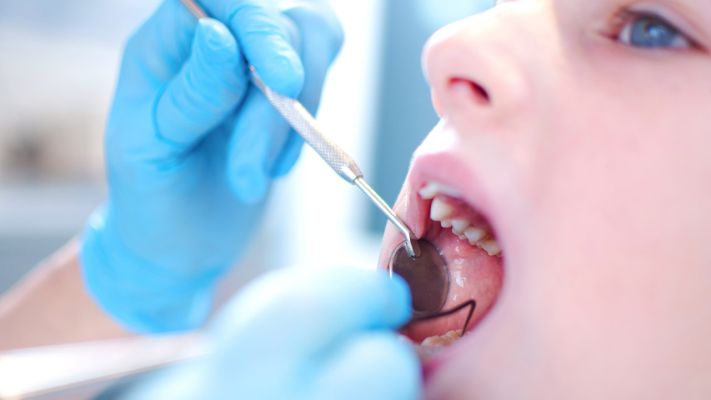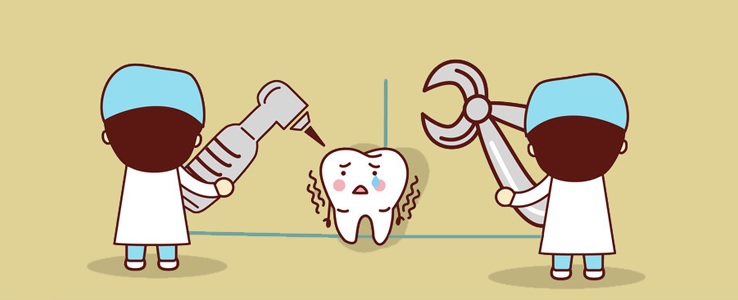Today there are opinions that many dentists carry out root canal treatment when it is not absolutely necessary, and it is usually a procedure not very well explained by dentists, so today we will discuss about, What is root canal treatment for? and its complications.
Root canal treatment is a common dental procedure and not many of us really know what it is for, why it is necessary, what benefit we will obtain or what its complications are.
Best dentist in Pitampura will try to clarify your doubts about root canal treatment so you can know if you need it or not.
What is a Root Canal?
A root canal is a funnel-shaped canal filled with soft tissue, which extends from the surface of a tooth down through the tooth itself and into the root.
Both root stems have a root canal. The canal is where the main nerve tissue is located in the tooth.
Why do you need Root Canal Treatment?
Root canal treatment in Pitampura is normally carried out when a tooth shows some level of decay or infection.
The procedure is designed to prevent further decay or spread of the infection, which can lead to complete tooth loss. The soft tissue is completely removed from the canals and replaced with artificial dental cement.
What happens in Root Canal Treatment?
Because the soft tissue in the canal contains nervous tissue, the procedure will require the administration of an anesthetic, this is usually a local anesthetic that will numb the tooth and surrounding areas.
Once anesthesia has been established, the dentist in Pitampura will drill down through the tooth, removing the infected or decaying tissue.
When the canal narrows at the stem of the actual root, the dentist will use a hand-held device to remove all the soft tissue.
The space left by the extracted tissue is filled with gummy cement, to ensure that there are no air pockets in the canal, the dentist will take an X-ray of the treated tooth.
If an air pocket is found, the dentist will have to remove the cement and refill the canal. This part of the procedure may have to be repeated several times.
When the dentist in Pitampura is convinced that there are no air pockets, he seals the hole permanently and the remaining cavity on top of the tooth is filled.
Is Root Canal Treatment Painful?
Root canal treatment in Pitampura gets a bad rap as an unpleasant treatment for some reason. The procedure is only carried out under anesthesia and, in most cases, it is no different from having a filling.
In some circumstances, the patient may feel something, as the treatment involves the removal of the nerve endings and some patients experience moderate pain for a day or two after the procedure.
Due to the nature of this, performing a root canal can sometimes be quite a lengthy procedure, so the patient remains in the chair for longer than normal, and this can increase discomfort, especially for more nervous patients.
Are there any alternatives to Root Canal Treatment?
The vast majority of dentists argue that there really is no alternative, in cases where infection is the problem, some dentists believe that it is preferred to treat the infection with antibiotics.
The case against this approach is that if antibiotic treatment doesn't work, it may be too late to save the root canal tooth.
The main reason for carrying out the procedure is that, before a new method of administration of antibiotics that can lead to a different approach, there was no way to directly attack the infected area, says the dentist in Shalimar Bagh.
Does Root Canal Treatment Work?
Although root canal failure is a reality, it happens more often than it should. When there is a root canal failure, root canal re-treatment can often solve the problem.
The main reason root canals fail is because of bacteria, if our mouths were sterile there would be no decay or infection, and damaged teeth could somehow repair themselves.
Common Reasons Why Root Canals Fail.
Although we can attribute almost all root canal failures to the presence of bacteria, we will look at the common reasons why root canals fail:
Lost Channels:
The most common reason for failure is untreated anatomy or missing canals, general knowledge of tooth anatomy should lead the doctor to find all canals.
For example:
Some teeth will have two canals 95% of the time, doing a root canal treatment without a microscope greatly reduces the chances of treating the canal.
Failure to treat the canal often leads to persistent symptoms and latent (long-term) failure.
The conclusion is that channels should not be lost, because there is a technology that allows them to be identified and located.
If a professional is performing root canal treatment in Shalimar Bagh, he or she needs to have the proper equipment to treat the entire anatomy present in a tooth.
Incomplete Treated Channel:
The second most common reason for failure is incompletely treated channels.
For example:
If a canal is 23 mm long, the doctor only treated 20 mm of it, the fact that it is low increases the probability of failure, because it means that the untreated space is ready for bacteria to reproduce and cause infection.
Fracture:
Another common reason for failure is root fracture. Although this may affect the treated root canal tooth, it may not be directly related to the treatment itself.
Root cracks allow bacteria to get into places they shouldn't be.
Fractures can occur in teeth that have never had a filling, indicating that many of them simply cannot be prevented.
How Safe Is Root Canal Treatment?
The safety of this treatment depends on how it is done. The researchers argue that, in most cases, only 44% of the bacteria are killed.
Therefore, the remaining 56% of bacteria will continue to cause damage to neighboring teeth, culminating in serious long-term dental problems.
Root Canal Treatment Complications.
Following are the complications in root canal treatment in Shalimar Bagh that can lead to further dental problems.
- Infections both inside and outside the tooth cavity.
- Negative immune response due to filling of the cavity.
- Irritation of tissues due to accumulation of cholesterol crystals.
- Cystic lesions in the affected root.
- Scar tissue damage in the root canal area
Recommendations for after root canal treatment.
- Avoid eating hard foods until treatment is complete
- Maintain good oral hygiene by brushing and flossing regularly
- Limit your intake of sugar and carbonated drinks.
With proper care, the treated tooth can last a lifetime.





